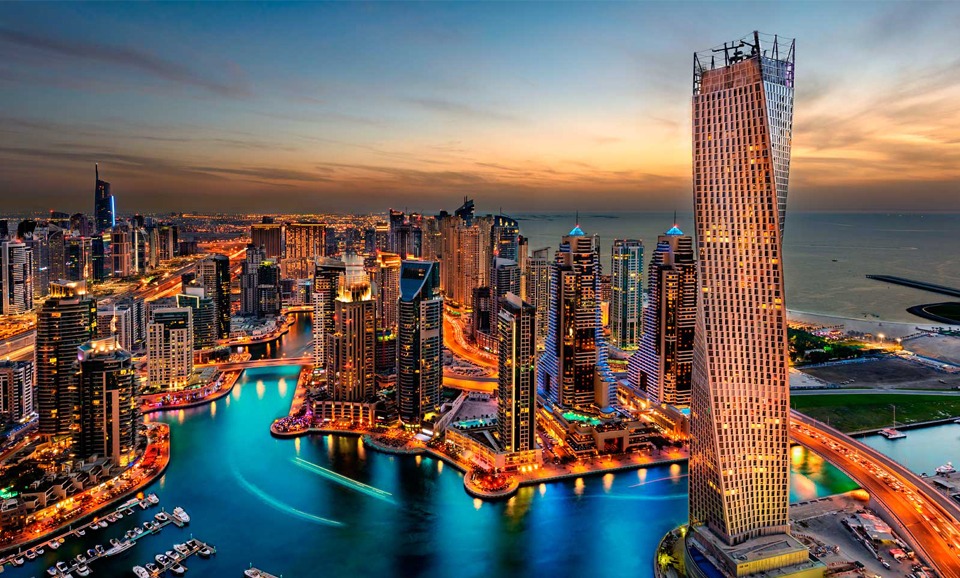FAQS (Frequently Asked Questions)
How can I determine the best location for my business in Dubai?
Consider the nature of your business, target market, cost implications, and benefits specific to Free Zones, Mainland, or Offshore jurisdictions.
Is it necessary to visit the UAE to set up a company?
No, many business setup processes can be handled remotely through business consultants or authorized service agents.
What is the cheapest business license in Dubai?
The cheapest business licenses are often found in Free Zones, with costs starting around AED 10,000 annually, depending on the zone and business activity.
Do I need a physical office to start a business in Dubai?
Yes, both Mainland and Free Zone businesses generally require a physical office space, though some Free Zones offer flexi-desk options.
How do UAE free zones differ from one another?
Free Zones differ in terms of industry focus, costs, benefits, and specific regulations, with each designed to cater to different business needs.
Can a Free Zone company operate in multiple Free Zones or across emirates?
No, a Free Zone license is valid only within that specific zone. To operate in other Free Zones or emirates, you’d need additional licenses or set up separate entities.
Are there restrictions on hiring employees in each jurisdiction?
Yes. In Free Zones, your visa quota depends on office size—e.g., one visa per 8–10 sq. m. Mainland companies have more flexibility with visa limits and team size.
How long does it typically take to set up a company in each jurisdiction?
Free Zone setups usually take 3–7 working days. Mainland setups may take 1–3 weeks, depending on approvals. Offshore company formation often completes in 3–5 days.
Can I convert my Free Zone or Offshore company to a Mainland company later?
There’s no direct conversion. You’ll need to establish a new mainland entity or branch and then shift operations. Offshore companies must start from scratch for mainland entry.
Do Free Zone setup packages really include everything, or are there extra charges?
Many “all-inclusive” packages exclude costs like visa quotas, medicals, Emirates ID, or additional office space. Always check the fine print before committing.
Can I reduce setup costs by choosing a flexi-desk instead of a full office?
Absolutely. Flexi-desks in Free Zones can reduce rent by 70–90%, but they may limit your visa quota or business image depending on your sector.
Is it more cost-effective to hire a PRO service or do it myself?
DIY may save money upfront, but PRO services often prevent costly delays and fines—especially helpful if you’re unfamiliar with local procedures.
Can I split setup costs over time, or is full payment needed upfront?
Some Free Zones allow installment payments, especially for startups. However, most government fees and visas require full payment upfront.
What happens if my selected trade name gets rejected?
You’ll need to revise and resubmit. DED allows multiple name choices in one application to avoid delays.
How long does the entire company formation process take from start to finish?
Typically 5–15 working days depending on the jurisdiction and documentation readiness. Mainland may take longer than Free Zones.
Do I need to be physically present in Dubai to register a company?
Not always. Many Free Zones allow remote setup via power of attorney, but some steps (e.g., bank account opening) may require in-person presence.
Is it mandatory to have a Local Service Agent (LSA) for every company?
No. Only certain business structures (like professional licenses or branches) require an LSA—LLCs in most sectors don’t need one anymore.
Are there any other hidden taxes or regulatory fees that businesses should account for beyond corporate tax and VAT?
Yes. You may face municipality fees, Chamber of Commerce dues, visa costs, and compliance charges—though these aren’t classified as taxes, they affect your budget.
Can I convert my company type later—for example, from Sole Establishment to LLC?
Yes, it’s possible, but you’ll need to cancel the old license and apply for a new structure, including fresh approvals and updated documents.
Can an LLC be owned by another company instead of an individual?
Yes, corporate shareholding is allowed in LLCs, though you’ll need to provide corporate documents and legal authorization from the parent company.
Can a company hold multiple licenses for different activities under one entity?
Yes, but only if the activities are compatible and approved under the same license type. Otherwise, you may need a second license or a separate entity.
What’s the difference between a general trading license and a commercial license?
A general trading license allows multiple unrelated goods (e.g., electronics + clothes), while a regular commercial license is limited to specific product categories.
Can I upgrade or change my license type after formation?
Yes, but you’ll need DED or Free Zone approval, possible document amendments, and payment of modification fees. It’s not an instant switch.
Can an e-commerce license also cover physical store sales?
Not by default. You’d need to add a commercial activity to your license if you plan to sell offline as well.
Do I need a tourism license if my business only offers travel-related consultancy, not booking services?
If you’re only advising and not selling travel services, a professional license may suffice. But DED may still require a tourism license depending on scope.
Which license is most suitable for hybrid business models (e.g., consulting + trading)?
Consider a dual-license setup or apply for both commercial and professional activities under a single license—if allowed by the authority.
Do banks or clients view certain structures more favorably than others?
Yes. Banks often prefer LLCs or Free Zone Companies for credibility, while large clients may favor Mainland firms for ease of contracting.
How does the structure affect my visa eligibility or staff hiring?
LLCs and Free Zone Companies allow multiple visas based on office size. Sole Establishments and freelance permits have limited visa options.
Is a local service agent the same as a business partner?
No. A local service agent (LSA) has no ownership or control—just a legal liaison. A business partner holds equity and may influence decisions.
Do Free Zone companies need to register for corporate tax even if they expect to be exempt?
Yes. All businesses must register for corporate tax, even if they qualify for a 0% rate under Free Zone incentives.
What happens if a Free Zone company earns revenue from the mainland—does it lose its tax exemption?
Yes. If a Free Zone company earns non-qualifying income from the mainland, it may become fully taxable at 9%, unless structured properly (e.g., via a mainland distributor).
Can a business claim input VAT on expenses before it’s officially VAT registered?
No. You can only claim input VAT after you’re registered. Any VAT paid before registration generally cannot be recovered.
How often do I need to file VAT returns in Dubai?
Most businesses file quarterly, but larger firms may be required to file monthly based on turnover and activity.
















